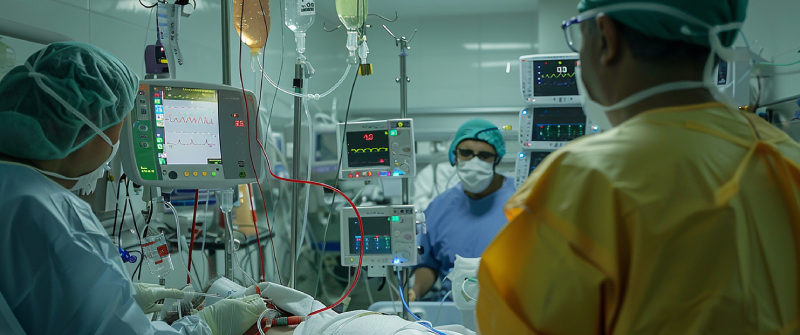
Intensive Care Unit (ICU)
The Intensive Care Unit (ICU) is a specialized hospital area dedicated to providing comprehensive and continuous care for critically ill patients. Equipped with advanced monitoring systems, life-support machines, and highly trained medical staff, the ICU ensures timely interventions for patients with severe illnesses, trauma, or post-surgical complications. The ICU plays a pivotal role in stabilizing vital functions, preventing complications, and improving patient outcomes.
Key Features of ICU
Advanced Monitoring – Continuous observation of heart rate, blood pressure, oxygen levels, and other vital signs.
Life Support Systems – Ventilators, dialysis machines, and cardiac support for critically ill patients.
24/7 Specialized Care – Round-the-clock attention from intensivists, nurses, and allied health professionals.
Infection Control – Strict protocols to prevent hospital-acquired infections in vulnerable patients.
Multidisciplinary Support – Coordination with surgeons, physicians, and other specialists for complex cases.
Emergency Readiness – Immediate interventions for cardiac arrest, respiratory failure, and shock.
Common Services Provided in ICU
- Respiratory support with ventilators and oxygen therapy
- Hemodynamic monitoring and management of blood pressure and cardiac function
- Renal support including dialysis for kidney failure
- Post-operative critical care and monitoring
- Management of severe infections and sepsis
- Trauma and emergency care for accidents and injuries
- Medication administration and monitoring for complex cases
- Nutrition and fluid management for critically ill patients
